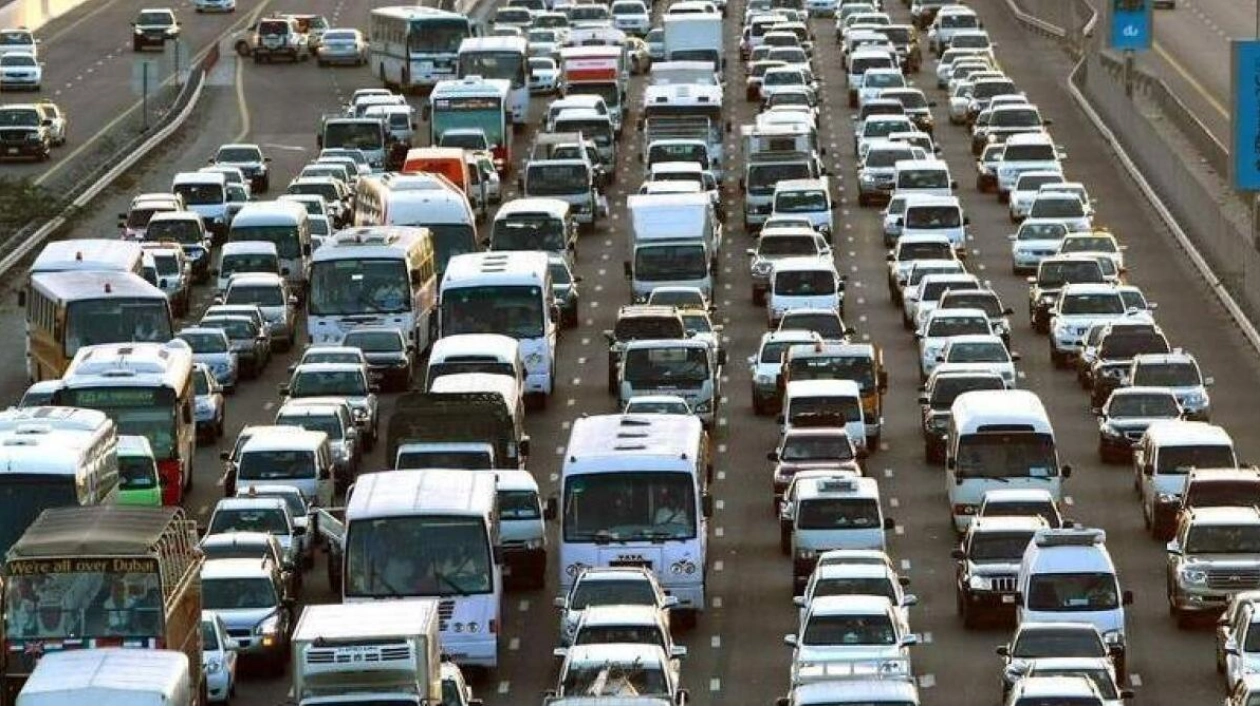Have you encountered traffic today? Motorists and commuters have noticed that road congestion has intensified in recent days due to the reopening of schools and the return of residents from their summer vacations. Although roads in the UAE are typically wide and well-maintained, the high volume of vehicles leads to traffic jams, particularly during rush hour. The country boasts one of the highest car ownership rates globally, with many residents considering private vehicles indispensable for daily travel. For example, in Dubai, the number of registered vehicles with Salik tags has risen to 4.2 million, an increase of 8.8 percent compared to the first half of last year. Meanwhile, registered active accounts have surged by 14.6 percent year-on-year, reaching approximately 2.5 million from around 2.2 million in the second quarter of 2023.
Five years ago, Khaleej Times reported, based on data from the Roads and Transport Authority (RTA), that there was one car for every two residents, or 540 vehicles per 1,000 people. This figure contrasts with cities like New York, London, Singapore, and Hong Kong, which have 305, 213, 101, and 63 vehicles per 1,000 residents, respectively. Less than two decades ago, in 2006, Dubai had only about 740,000 registered vehicles. This number doubled to 1.4 million by 2015 and reached 1.83 million by 2020. Currently, it is estimated that around 3 million cars circulate in Dubai on busy weekdays, including those from neighboring emirates.
The question arises: Would reducing the number of cars on the road on certain days of the week alleviate traffic? Could an 'odd-even scheme,' implemented in some major cities worldwide, help ease peak-hour congestion? Dr. Monica Menendez, Associate Dean of Engineering for Graduate Affairs at New York University Abu Dhabi (NYUAD), explained: 'The odd-even scheme, also known as road space rationing, involves restricting cars from the road on different days based on the last digit of the license plate.' This means vehicles with plates ending in 1 and 2 are prohibited on Mondays, 3 and 4 on Tuesdays, and so on, with all vehicles allowed on weekends.
'The scheme has been adopted in various cities globally, including Mexico City, Athens, and Beijing, with varying degrees of success,' she told Khaleej Times. Dr. Menendez noted that while the odd-even scheme is a direct and straightforward method to reduce traffic and pollution, it may not be equitable, as households with multiple cars are less impacted. This could potentially lead to higher vehicle ownership rates and increased demand for parking.
Dr. Menendez suggested that instead of city-wide implementation, the odd-even scheme could be targeted at specific roads or areas. 'It is essential to provide alternative transportation options, making improvements to public transportation and other modes key,' she added. Additionally, transportation experts and urban planners have discussed implementing congestion charges in busy areas to reduce traffic and pollution and fund mass transit.
Dr. Menendez emphasized that no single strategy can address all traffic issues. 'We should consider a combination of strategies to enhance the efficiency of road transportation and alternative modes, while promoting sustainable and climate-friendly transit options to discourage car use.'






